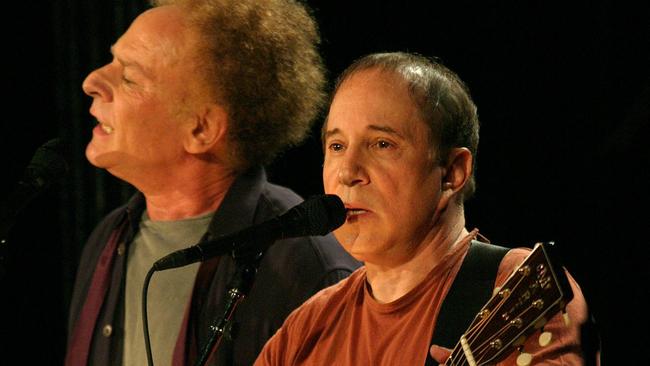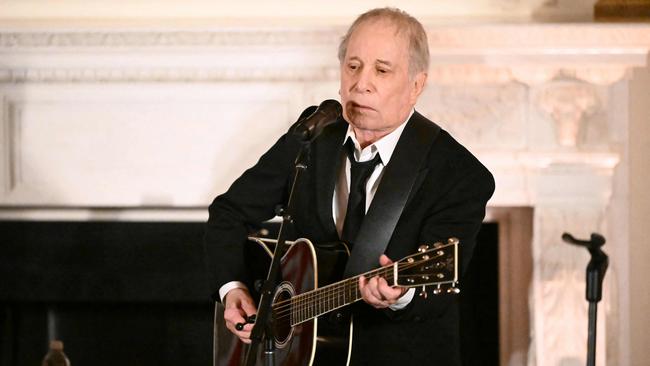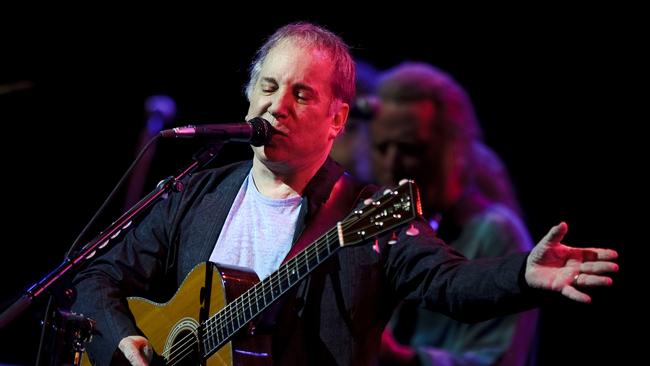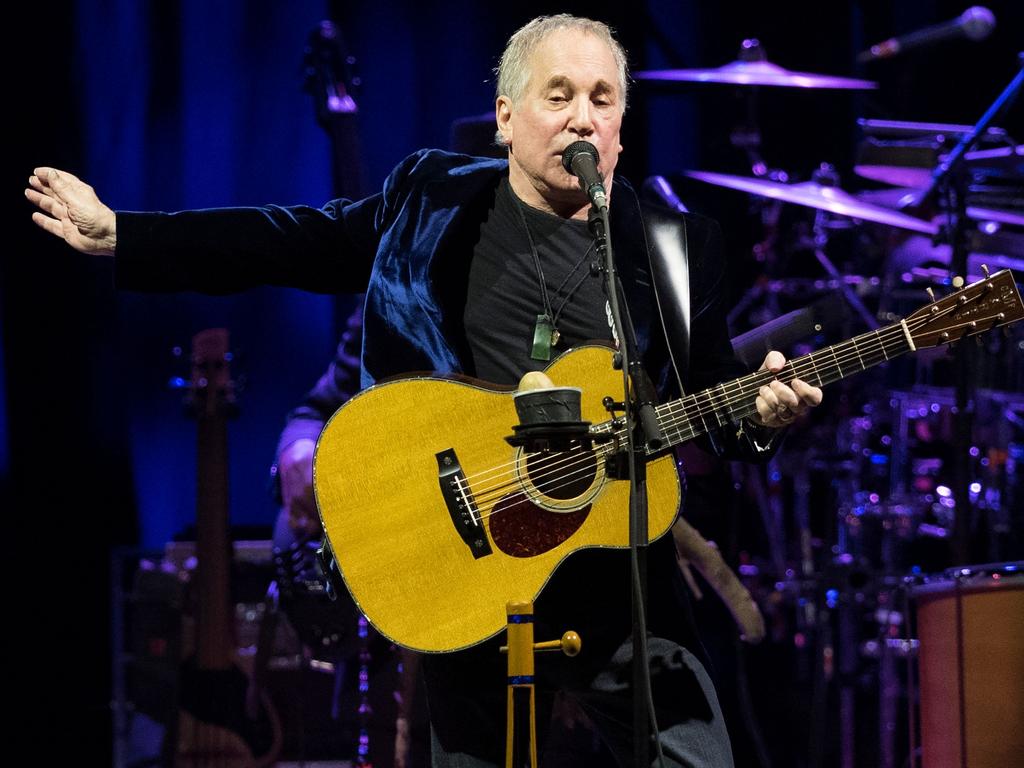Paul Simon talks about Freudian dramas with partner Art Garfunkel
In an epic new documentary by Alex Gibney, the musician reveals the roots of the pop duo’s bitter rivalry and opens up about his deafness.

Early in the new, 3½-hour documentary, In Restless Dreams: The Music of Paul Simon, the star subject delivers some unnerving news. “Last October, I lost the hearing in my left ear,” Simon says, casually, in his home recording studio in Texas, while fiddling with instruments and straining to catch the perfect guitar chord.
It is June 2021, and Simon is working on the Seven Psalms album and talking off camera to the film’s director, Oscar-winning documentary-maker Alex Gibney (Enron: The Smartest Guys in the Room, Taxi to the Dark Side, We Steal Secrets: The Story of WikiLeaks).
“By the end of October it was almost gone,” Simon continues. “It threw me off. My voice wasn’t sitting in the same place any more. It was coming from (indicates the right side of his skull) over here.”
There’s a pause while Simon lets the information sink in – the man behind musical masterworks such as The Boxer, Mrs Robinson, Cecilia and Bridge Over Troubled Water is facing his own encroaching sound of silence. “But maybe this is part of the process,” he adds. “It’s going to be harder now. And maybe it was meant to be harder. This is a journey for me to complete.”

The near mythical nature of this ordeal was not lost on Gibney, who spent a year trailing Simon, 82, bouncing around Texas and New York while Seven Psalms was being recorded and who was moved by what he saw.
“This is a man at the end of his life reckoning with (musical) work that is also about mortality and spirituality even as he is literally losing his hearing,” he says. “That struggle, that essential human struggle that we all go through? That’s a powerful idea.”
And so, no, this is not, as Gibney warns, “the Wikipedia version of the career of Paul Simon”. It’s something grander, more meaningful. It asks unfashionable questions about where Simon’s music comes from. Mostly, it transpires, from dreams. The melodies and partial lyrics from Seven Psalms were delivered to Simon in 2019 while he slept, just as his early hits, 60 years previously, came to him in an unconscious “flow” at his home. “He’s very much engaged with the whole idea of the mystery surrounding the process,” Gibney says. “I think he flirts with the idea of the spirit and of something otherworldly.”
The film also addresses the great dramatic tension of Simon’s life, that of his profound yet flawed partnership with Art Garfunkel.
Meeting and bonding as New York schoolboys, they emulated the harmonies of the Everly Brothers, performed in clubs and after recording one flop album (Wednesday Morning, 3am) went their separate ways; Simon moved to London for two years in 1965. But when a modest track from that album, The Sound of Silence, was remastered and re-released in 1966 the pair became a worldwide phenomenon.

Gibney charts their rise and disintegration, with Simon writing all the songs and controlling all the recording sessions, and Garfunkel drifting towards acting in Catch-22 and Carnal Knowledge. Theories about their break-up abound and most include Garfunkel’s resentment at Simon’s power. And yet, at just over halfway through the film, Gibney drops in a soundbite from Simon today.
“My mother once said, ‘You have a good voice, Paul. But Arthur has a fine voice!’.” Simon half winces and even jokes that this is his “Freudian trauma”, and yet the idea of a fraternal rivalry sticks.
“At the end of the day, it all goes back to our mothers and our fathers,” Gibney says. “These things that happen to you in your childhood can lead to a deep psychological drive.”
Musical historians have painted Simon as a gruff, controlling perfectionist, and Garfunkel the victim. “Well, I will tell you that Garfunkel is difficult,” Gibney counters. “I spoke to him and tried to get him in the movie and it was so difficult that, in the end, I had to rely on archive.”
The negative perception of Simon? “That was a vibe I’d heard from a lot of people when I told them I was beginning this project,” he says. “And I think there’s a bluntness to Paul sometimes. You can believe there are moments in studio sessions where he’s blunt. But I came to have a different view, and in my experience he was quite generous and vulnerable.”
Gibney, 70, says he is more like Paul Simon now. “Being open, in a kind of mystical way, to what a film is trying to tell me matters,” he says. “And that’s what Paul is doing. He’s being open to what the song is trying to tell him. He’s a musical explorer, always looking, always searching. And that’s what keeps you young.”
In Restless Dreams: The Music of Paul Simon will be available from October 28.
THE TIMES




